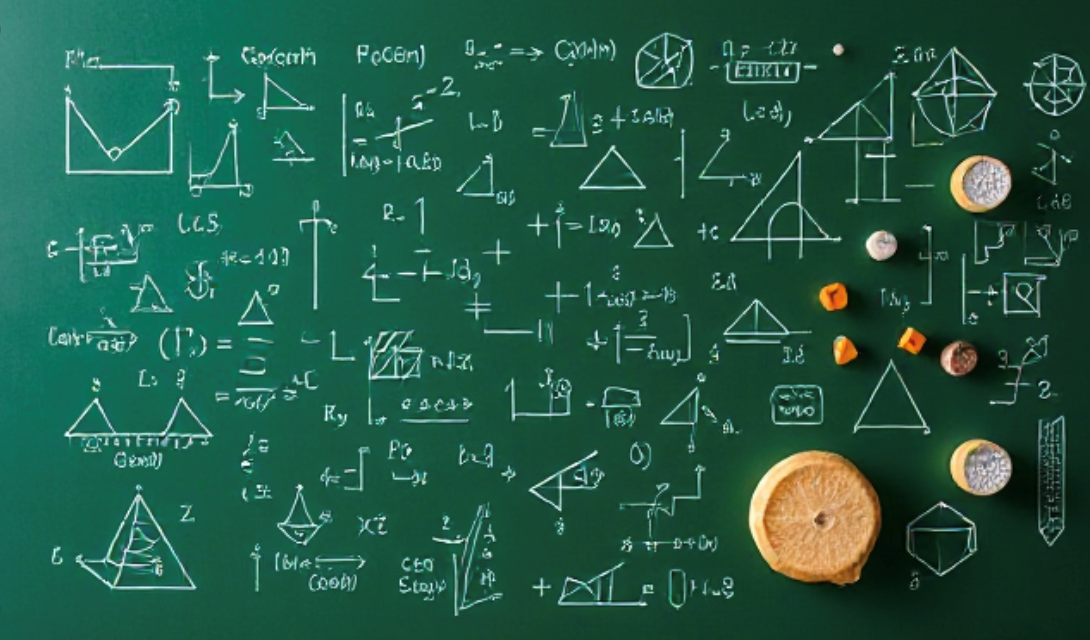Most middle and high school math curricula follow a well-defined path:
Pre-algebra → Algebra 1 → Geometry → Algebra 2 → Trig / Precalculus → Calculus
Other middle and high schools prefer an “integrated” curriculum, wherein elements of algebra,
geometry and trigonometry are mixed together over a 3-year or 4-year sequence. However, both of these approaches generally lack a great deal of emphasis on discrete math: topics such as combinatorics, probability, number theory, set theory, logic, algorithms, and graph theory. Because discrete math does not figure prominently in most states’ middle or high school “high-stakes” progress exams, and because it also does not figure prominently on college admissions exams such as the SAT, it is often overlooked.
However, discrete math has become increasingly important in recent years, for a number of reasons:
Discrete math is essential to college-level mathematics and beyond.
Discrete math—together with calculus and abstract algebra—is one of the core components of mathematics at the undergraduate level. Students who learn a significant quantity of discrete math before entering college will be at a significant advantage when taking undergraduate-level math courses.
Discrete math is the mathematics of computing.
The mathematics of modern computer science is built almost entirely on discrete math, in particular combinatorics and graph theory. This means that in order to learn the fundamental algorithms used by computer programmers, students will need a solid background in these subjects. Indeed, at most universities, an undergraduate-level course in discrete mathematics is a required part of pursuing a computer science degree.
Discrete math is very much “real-world” mathematics.
Many students’ complaints about traditional high school math—algebra, geometry, trigonometry, and the like—are, “What good is this for?” The somewhat abstract nature of these subjects often turns off students. By contrast, discrete math, in particular counting and probability, allows students—even at the middle school level—to very quickly explore non-trivial “real world” problems that are challenging and interesting.
Discrete math shows up in most middle and high school math contests.
Prominent math competitions such as the International Maths Olympiad feature discrete math questions as a significant portion of their contests. On harder high school contests, such as the AIME, the quantity of discrete math is even larger. Students who do not have a discrete math background will be at a significant disadvantage in these contests. In fact, one prominent Math coach tells us that he spends nearly 50% of his preparation time with his students covering counting and probability topics, because of their importance in global contests.
Discrete math teaches mathematical reasoning and proof techniques.
Algebra is often taught as a series of formulas and algorithms for students to memorize (for example, the quadratic formula, solving systems of linear equations by substitution, etc.), and geometry is often taught as a series of “definition-theorem-proof” exercises that are often done by rote (for example, the infamous “two-column proof”). While undoubtedly the subject matter being taught is important, the material (at least at the introductory level) does not lend itself to a great deal of creative mathematical thinking. By contrast, with discrete mathematics, students will be thinking flexibly and creatively right out of the box. There are relatively few formulas to memorize; rather, there are a number of fundamental concepts to be mastered and applied in many different ways.
Discrete math is fun.
Many students, especially bright and motivated students, find algebra, geometry, and even calculus dull and uninspiring. Rarely is this the case with most discrete math topics. When we ask students what their favourite topic is, most respond either “combinatorics” or “number theory.” (When we ask them what their least favourite topic is, the overwhelming response is “geometry.”) Simply put, most students find discrete math more fun than algebra or geometry.
For more insights like this, visit our website at www.international-maths-challenge.com.
Credit for the article given to David Patrick

